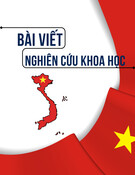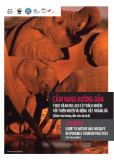
See discussions, stats, and author profiles for this publication at: https://www.researchgate.net/publication/293478773
The role of events in tourism development
ArticleinBizinfo Blace · December 2015
DOI: 10.5937/BIZINFO1502083O
CITATIONS
88
READS
66,615
1 author:
Sonja Zlatanov
Visoka poslovna škola strukovnih studija, Blace, Srbija
16 PUBLICATIONS254 CITATIONS
SEE PROFILE
All content following this page was uploaded by Sonja Zlatanov on 24 November 2017.
The user has requested enhancement of the downloaded file.

Часопис БизИнфо
Година 2015, волумен 6, број 2, стр. 83-97
BizInfo Journal
Year 2015, Volume 6, Number 2, pp. 83-97
Стручни рад/ Professional paper
УДК/UDC: 005.51:338.48-61
DOI: DOI:10.5937/BIZINFO1502083O
THE ROLE OF EVENTS IN TOURISM DEVELOPMENT
УЛОГА ДОГАЂАЈА У РАЗВОЈУ ТУРИЗМА
Sonja Oklobdžija
Visoka poslovna škola strukovnih studija, Blace
Abstract: Tourism is the act of travel for the purpose of recreation and
leisure, and also refers to the provision of services to achieve this goal. As
the number of tourists worldwide is rising, so do their expectations and needs
for specific experiences. There lays the role of events and their significance in
modern tourism. Events are not only one of the most important parts of
tourism, but also inseparable part of human society. They are global
phenomenon which is gaining greater and greater importance through the
event industry. There are a number of different types of events in the world,
and there are more arising every year. Under these circumstances, the key
role of success of certain event lies in proper strategic planning. The subject
of this paper is to present the roles of events in contemporary tourism and to
define their origins, classification, tourist value, impacts and outcomes.
Keywords: events, event tourism, the portfolio approach, strategic planning.
Апстракт: Туризам представлја чин путовања у сврхе рекреације и
одмора, и такође се односи и на пружање услуга како би се постигли
ти цилјеви. Како број туриста широм света расте, тако расту и
њихове потребе и захтеви за специфичним искуствима. Ту лежи улога
догађаја и њихов значај у модерном туризму. Догађаји нису само један
од најважнијих делова туризма, већ су и неизоставни део лјудског
друштва. Они су глаблни феномен који сваким даном добија све већи
значај кроз индустрију догађаја. Постоји огроман број догађаја на
целом свету и њихов број се повећава сваке године. У овим
околностима, клјучна улога успеха једног догађаја лежи у правилном
стратешком планирању. Тема овог рада је представлјање улоге
догађаја у савременом туризму, као и дефинисање њиховог порекла,

Sonja Oklobžija
Часопис БизИнфо, 2015, волумен 6, број 2, стр. 83-97
84
класификација, туристичка вредност и кратак приказ утицаја и исхода
догађаја на развој туризма у дестинацији.
Клјучне речи: догађаји, туризам догађаја, портфолио приступ,
стратешко планирање.
1. INTRODUCTION
Various types of festivals and events have long existed as significant part of
human society and were devised as forms of public display, civic ritual and
collective celebration. In fact, people in all cultures recognized the need to set
aside certain times and spaces for communal creativity and celebration
(Quinn, 2009). These practices date back centuries, even millenniums.
Considering the diverse nature of events, their formation is not linked to the
same time period. It is well known that the exhibitions and trade events were
held in the ancient period. Ancient historians noted sport events as significant
and prestigious form of social activities, which reached its peak with the
organization of the ancient Olympic Games. Festival-type events are known
to have existed since the Middle Ages when they were financed by the
church, although some types of similar events date back to the Roman times.
As much as it seems that the conference events are a product of modern life,
their origins date back to the 18th century.
Events are likely to have originated even before the appearance of money, but
the establishment and acceptance of the general equivalent was undoubtedly
followed by their further development. The emergence of capitalism, new
products and new social relations, as well as the new way of life paved the
way for more versatile development of the growing number of events.
However, it was during the 20th century when the development of all the
different types of events peaked and they came close to what we nowadays
consider events. It was because of the phenomenon of discretionary income,
increase in purchasing power and standards of consumers, shifting the focus
from fundamental to additional needs, and the birth of completely new
consumers’ needs which all increased the demand for a specific range of
events, which then stimulated the development of various contemporary
events. Development of events in the economic sense helped solve the
problem of employment and had an impact on economic growth, especially in
developed market economies. The best example for that is the impact of mega
sport events such as the Olympic Games or World Championships of popular
sports on the economic growth of host countries. Historical research
demonstrates how the events evolved from primitive gathering of people for
agricultural or religious reasons to modern type of events, as well as their
long history of attracting tourists and establishing host communities as tourist
destinations.

THE ROLE OF EVENTS IN TOURISM DEVELOPMENT
Часопис БизИнфо, 2015, волумен 6, број 2, стр. 83-97
85
2. DEFINITIONS OF EVENTS
There is no single universally accepted definition of event. Many authors
have discussed the definition of events and the various terms used to describe
them. However, there is only limited agreement on standardised terms,
definitions or categories to use. The differences are manifested as a result of
different approaches of authors to defining certain events. Most authors agree
that the event in the economic sense is a part of service economy, and
different approaches to defining the event are the consequences of the
specific characteristics of the environment in which some of the authors work
and create. In addition, the events are highly versatile; therefore the definition
of the events can be flexible to suit different situations.
The Accepted Practices Exchange Industry Glossary of TERMS (APEX,
2005) defines an event as, “An organized occasion such as a meeting,
convention, exhibition, special event, gala dinner, etc. An event is often
composed of several different yet related functions.”
Goldblatt (2005) focuses on special events as “a unique moment in time,
celebrated with ceremony and ritual to satisfy specific needs.” Getz (2008)
notes that events are spatial - temporal phenomena and that each is unique
because of interactions among the setting, people, and management systems,
including design elements and the program. He highlights the fact that the
biggest appeal of events is that they are never the same, and that the guest has
“to be there” in order to enjoy the experience fully. He suggests two
definitions, from the perspective of the event organizers, as well as the
guests’:
1. A special event is a one-time or infrequently occurring event outside
normal programmes or activities of the sponsoring or organizing
body.
2. To the customer or guest, a special event is an opportunity for leisure,
social or cultural experience outside the normal range of choices or
beyond everyday experience.
Bowdin (2006) notes that the term “event” has been used “to describe
specific rituals, presentations, performances or celebrations that are
consciously planned and created to mark special occasions and/or to achieve
particular social, cultural or corporate goals and objectives.” Jago and Shaw
(1998) suggest six features of special events. According to them, special
events should:
1. Attract tourists or tourism development
2. Be of limited duration
3. Be one-off or infrequent occurrence
4. Raise the awareness, image, or profile of a region

Sonja Oklobžija
Часопис БизИнфо, 2015, волумен 6, број 2, стр. 83-97
86
5. Offer a social experience
6. Be out of the ordinary
Summarising the definition of a special event, they note it as: “A one-time or
infrequently occurring event of limited duration that provides the consumer
with a leisure and social opportunity beyond everyday experience. Such
events, which attract or have the potential to attract tourists, are often held to
raise the profile, image or awareness of a region.”
3. CLASSIFICATION OF EVENTS
There are different criteria for classification of events. The basic one
classifies events as planned and unplanned. Planned events are the subject of
study of event management and they require setup, management, executives
and certain length of time. Unplanned events are accidents, natural disasters
and other similar, and they will not be taken into consideration in this paper.
If the events are classified according to their size and scope, it is possible to
distinguish the following four types:
1. Mega events
2. Hallmark events
3. Major events
4. Local events
Mega event is an event that has impacts on the overall economic activity of
the host country, and is globally covered by media. In economic terms, mega
event is strongly reflected in the tourism and economic infrastructure of the
host country. These events are generally associated to sports events. They
include the Olympic Games, the Paralympic Games, the FIFA World Cup,
the IAAF World Championships and World Fairs, but it is difficult for many
other events to fit into this category.
Getz (2005) defines them: “Mega-events, by way of their size or significance,
are those that yield extraordinarily high levels of tourism, media coverage,
prestige, or economic impact for the host community, venue or organization.”
Another author, Hall, explains that mega events owe their name to their size
in terms of attendance, target market, level of public financial involvement,
political effects, extent of television coverage, construction of facilities, and
impact on economic and social fabric of the host community (Allen et al.,
2011).
Hallmark event is an event with the distinctive quality of the program.
Hallmark events are so identified with the spirit and soul of a host community
that they become synonymous with the name of the place, and gain
widespread recognition and awareness. Hallmark events are of special





![Ngân hàng câu hỏi trắc nghiệm Tổng quan du lịch [chuẩn nhất]](https://cdn.tailieu.vn/images/document/thumbnail/2025/20251007/kimphuong1001/135x160/32091759830428.jpg)




















